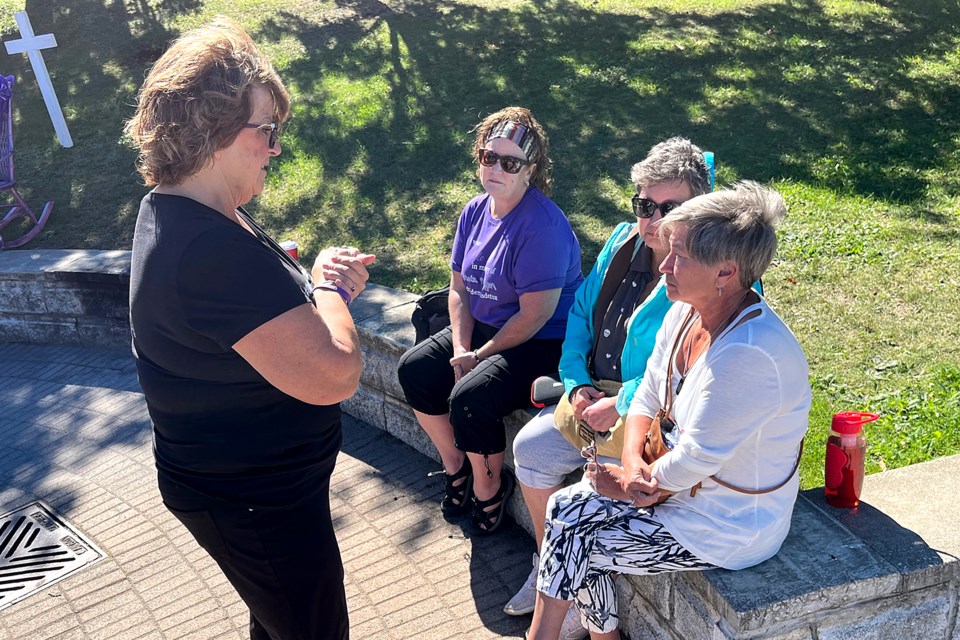THUNDER BAY – Carolyn Karle’s daughter was just 31 years old when she relapsed, used fentanyl-laced cocaine, and died.
Sober for some time at that point, Dayna Karle last October took the wrong drug at the wrong time and paid with her life.
Her mother wants to ensure no other family has to go through what she, and so many others in Thunder Bay, have endured, the steady stream of bad street drugs with seemingly no end in sight, proving deadly to users across the socio-economic spectrum.
On Wednesday, Carolyn Karle gathered with survivors and front-line workers at a parkette in the city’s south side, helping to observe International Overdose Awareness Day while providing public awareness about a growing problem in Thunder Bay and around the world.
“I really want people to understand that this can happen to anybody. It’s our loved ones that are lost to this epidemic of drug addiction and drug poisoning,” Karle said. “There are so many people affected by it that I want to see people be able to reach out for help, people that are struggling.”
Karle said drug addiction is a shameful illness, one many users don’t want to admit to publicly. People tend to suffer alone and reach out for help.
That can prove deadly, she said.
“It’s very important that people do not use alone and that they can get help and support when they’re ready.”
First and foremost, Karle wants to see more resources available in the city.
She’s helped lead the charge for a detox centre, and said more needs to be done to ensure the problem doesn’t continue to fly below the radar.
In 2021, more than 150 people died from drug overdoses in Thunder Bay, according to a coroner’s report.
That was nearly 50 per cent more than the year before. The Thunder Bay District Health Unit also last year led Ontario in opioid deaths per capita, with 118 deaths tied to the drug.
Cynthia Olsen, who heads up the city’s drug strategy committee said a variety of factors are playing into the increased fatalities, but also noted Thunder Bay is not alone.
“We’ve certainly seen an increase in overdoses in Canada since the pandemic. There was an upward trajectory before that as well, but it really did increase,” Olsen said.
“I know more recently there is information that even a year or two into the pandemic there is a continued increase of overdoses. It’s largely being driven by fentanyl in the drug supply and it really impacts all walks of life. We know there are some populations that are disproportionately impacted.”
Olsen said things like upstream prevention can go a long way, but it takes time and money to change the community’s trajectory.
Treatment and harm reduction interventions, combined with public awareness and the elimination of the stigma surrounding drug use are great starting points.
Not enough people are willing to come forward, though naloxone kits are growing in availability and more people have been trained to use them to help counter the effects of an overdose.
“Thankfully our community does have a supervised consumption service that’s reaching folks that are accessing that. We’ve got Lifeguard Digital Health. These are all tools in the tool box that we can use. Certainly we need to do more advocacy about increased funding for mental health and substance abuse services for housing and homelessness and for upstream prevention in the community.”
Most importantly, it’s time to talk about the problem.
“We have to be open to know that families and communities are struggling and that there are resources in the community.”
